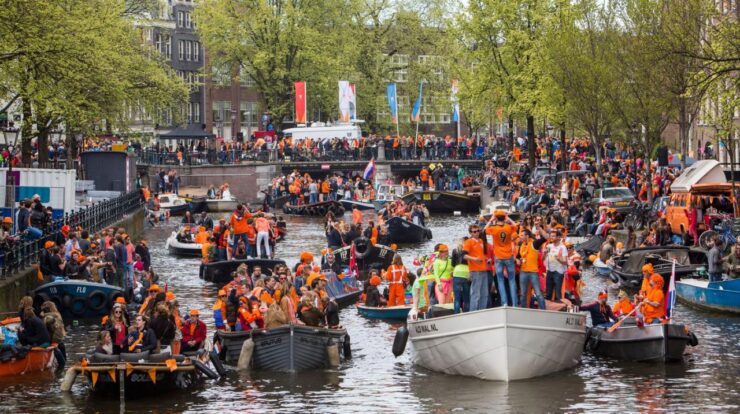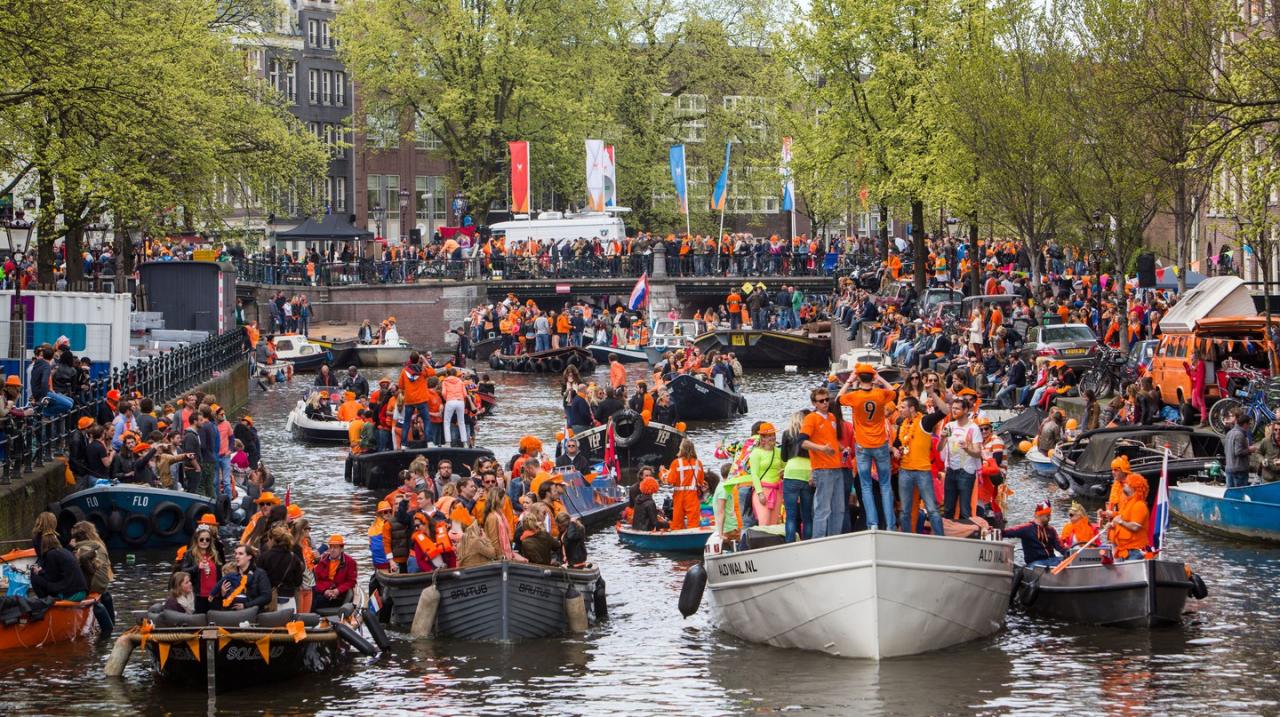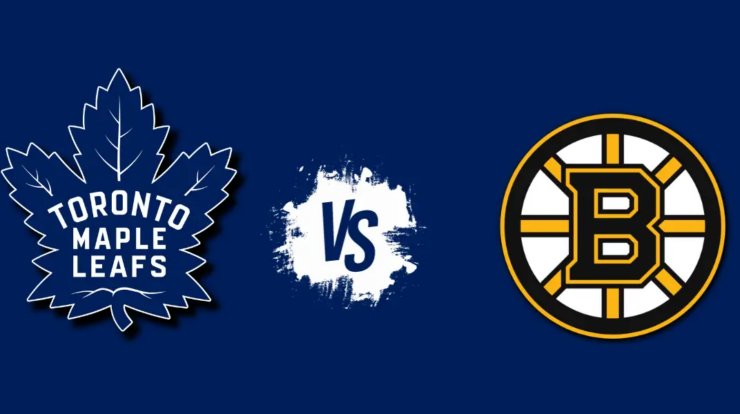
Netherlands Kings Day, a beloved national holiday, captivates the Netherlands with its vibrant festivities, rich symbolism, and deep-rooted historical significance.
Rooted in the reign of King Willem I, Kings Day has evolved into a celebration of Dutch identity, showcasing the country’s colorful culture, traditions, and the enduring legacy of the House of Orange-Nassau.
1. Historical Origins and Significance
Kings Day, celebrated annually on April 27th in the Netherlands, traces its roots back to the 19th century. It commemorates the birth of King Willem-Alexander, the current monarch of the Netherlands, and the royal House of Orange-Nassau.
The House of Orange-Nassau has a long and illustrious history in the Netherlands, dating back to the 16th century. The family has played a pivotal role in Dutch politics and society, and Kings Day serves as a celebration of their enduring legacy.
The holiday is steeped in symbolism and tradition. The color orange, associated with the House of Orange-Nassau, is ubiquitous during Kings Day celebrations. People wear orange clothing, decorate their homes and streets with orange flags and streamers, and indulge in orange-themed food and drinks.
2. Celebrations and Festivities
Kings Day is a vibrant and joyous occasion marked by a wide array of festivities across the Netherlands. The most prominent celebrations take place in major cities such as Amsterdam, Rotterdam, and The Hague.
- Amsterdam:The city transforms into a sea of orange as locals and tourists alike gather for street parties, live music, and the iconic King’s Day Concert.
- Rotterdam:Known for its eclectic mix of cultures, Rotterdam hosts a vibrant Kings Day festival with food stalls, live performances, and a grand parade.
- The Hague:As the seat of the Dutch government, The Hague hosts official ceremonies and receptions attended by the Royal Family.
The Dutch Royal Family plays an integral role in Kings Day celebrations. King Willem-Alexander and Queen Máxima, along with their daughters, visit different cities to interact with the public and participate in various events.
3. Cultural Impact and Symbolism
Kings Day holds immense cultural significance in Dutch society. It is a day of national unity and pride, where people come together to celebrate their shared history and traditions.
The color orange, synonymous with the holiday, symbolizes the Dutch national identity and the House of Orange-Nassau. It is a vibrant and cheerful color that evokes feelings of joy and celebration.
Kings Day has influenced Dutch art, music, and literature. Artists have captured the festive spirit of the holiday in their paintings and sculptures, while musicians have composed songs and melodies inspired by its traditions.
4. International Recognition and Tourism
Kings Day has gained international recognition and popularity over the years. Its unique blend of tradition, music, and vibrant street parties has attracted visitors from around the world.
The holiday has a significant economic impact on the Netherlands, as tourists flock to the country to experience the festivities firsthand. Hotels, restaurants, and transportation services see a surge in demand during Kings Day.
International collaborations and celebrations have further enhanced the global reach of Kings Day. Embassies and Dutch communities worldwide organize events to commemorate the holiday and share Dutch culture with international audiences.
5. Evolution and Modernization: Netherlands Kings Day

Kings Day has evolved over the years to reflect changing societal norms and technological advancements.
Traditionally, Kings Day was a day of national reflection and religious services. However, in the 20th century, it gradually transformed into a more festive and secular occasion.
Technology and social media have played a significant role in shaping the modern-day experience of Kings Day. Social media platforms provide real-time updates on events and activities, while mobile apps facilitate cashless transactions and easy access to information.
Final Conclusion
Today, Kings Day remains a cherished tradition, uniting the Dutch people in a symphony of orange, music, and revelry. Its cultural significance extends beyond the Netherlands, attracting global attention and inspiring international celebrations that honor the spirit of this unique and unforgettable holiday.
Essential Questionnaire
When is Kings Day celebrated?
Kings Day is celebrated annually on April 27th, the birthday of King Willem-Alexander.
What is the significance of the color orange on Kings Day?
Orange is the national color of the Netherlands and is associated with the House of Orange-Nassau, the Dutch royal family.
What are some popular activities during Kings Day?
Kings Day festivities include flea markets, street parties, concerts, and traditional Dutch games like “klosbaan” (clogs bowling).





